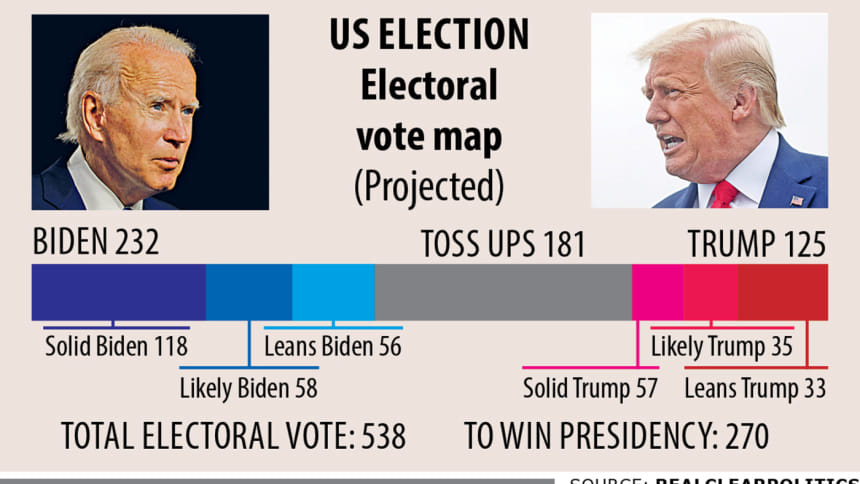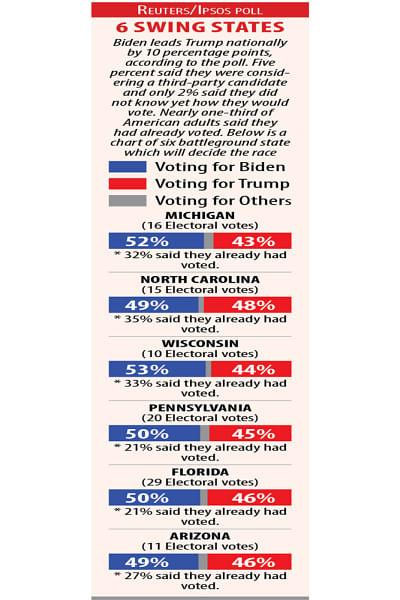A method behind the madness!

With his insults of US allies, soft spot for autocratic rulers and contempt for international agreements, President Donald Trump has turned US foreign policy on its head over a chaotic four years.
But behind the bombast, is there in fact a "Trump Doctrine," a method behind the madness on which voters will decide on November 3?
Trump has embraced the term "America First," reflecting his campaign promises four years ago of curbing immigration, confronting a rising China, winding down "endless wars" and renegotiating trade deals that the tycoon charged had hurt US workers.
Colin Dueck, a visiting scholar at the American Enterprise Institute and author of "Age of Iron: On Conservative Nationalism," said that Trump's worldview has on some core issues been strikingly consistent.

"I think there is a kind of Trump Doctrine, even though it obviously doesn't fit the usual DC pattern at all," Dueck said.
Dueck noted that Trump has constantly prioritized US commercial interests and has questioned the need for military deployments, most recently vowing to speed up the US withdrawal from Afghanistan.
In style, the real estate mogul -- who has boasted for decades of his negotiating skills -- has shown a willingness to engage widely, putting out not just barbed tweets but also eyebrow-raising praise.
"He's open to negotiating with almost anybody other than ISIS," Dueck said of Trump. "The up-and-down ladder of escalation is characteristic."
Even if Trump is not known to be a student of history, Dueck said that Trump was reviving a pre-Cold War US approach to the world.
Leaders of Trump's Republican Party a century ago similarly ran on the "America First" slogan -- slamming the brakes on immigration, rejecting the fledgling League of Nations and vigorously promoting economic goals.
The US as an independent actor, not thinking of multilateral commitments of having primary importance, and just looking at the world from the point of view of does this serve American interests narrowly defined -- it was a dominant strain of American foreign policy for generations prior to World War II.
On the flip side, Trump has for the first time raised questions about US commitments to the Nato alliance and aggravated the impact of the Covid crisis, Thomas Wright, a senior fellow at the Brookings Institution, said.
"I think there's uncertainty about America's role in the world that wasn't there before," Wright said.
Even if Trump loses, his impact will likely be long-lasting for the United States and the world.

 For all latest news, follow The Daily Star's Google News channel.
For all latest news, follow The Daily Star's Google News channel. 



Comments